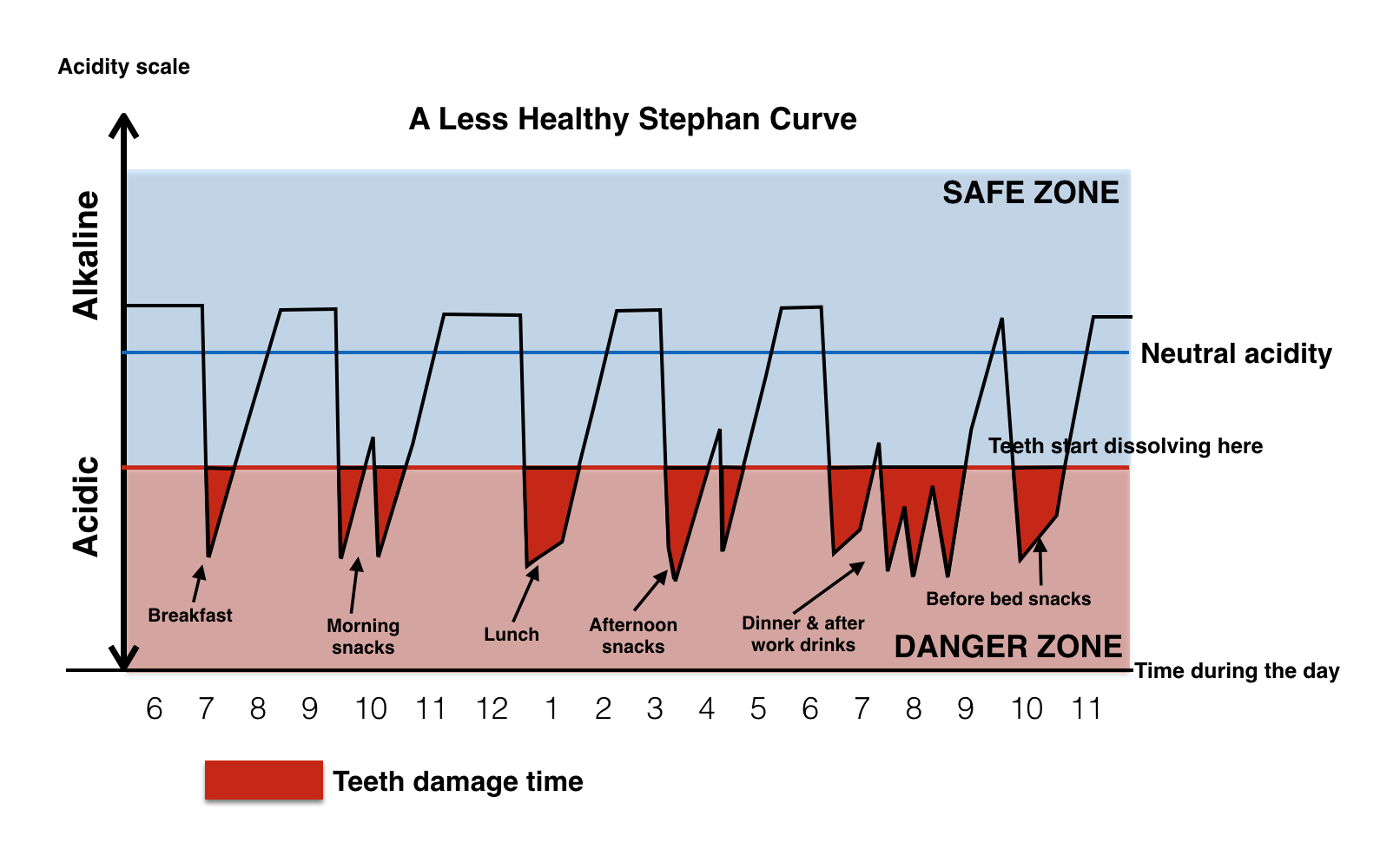
How Eating Affects Our Oral Health
By Brandon Fujii – February 7, 2021
Food. You eat food, I eat food, we all eat food. From simple snacks, to hearty meals, to Instagram worthy foodie posts, our lives revolve around food. While our taste buds might like certain foods, some foods aren’t great for our teeth and oral health.
As mentioned in our previous article What are Dental Cavities and How Can We Prevent Them?, cavities form when enamel demineralizes beyond repair. In order to protect our enamel and prevent cavities, as we grow older, we should do our best to limit the consumption of certain foods and beverages that can cause our enamel to breakdown.
When sugar levels increase in the mouth, so does the activity of the bacteria in the mouth. The bacteria consumes the sugar and produces acid that demineralizes the enamel of our teeth. This is why the American Dental Association (ADA) recommends avoiding the following foods and drinks when possible:
Soda and sugary drinks
Sugary snacks, gummies, and hard candies
Chips
High quantities or frequent consumption of citrus
Alcohol
Gummies can damage our teeth as they can adhere to the surfaces of our teeth for long periods of time, and hard candies should be avoided when possible as they can lead to dental emergencies like chipping or breaking a tooth.
Chips contain high contents of starch, which turn into sugar when broken down. They also threaten tooth damage as they can become wedged between our teeth and remain in our mouths for longer periods of time. In order to avoid plaque build-up, flossing is highly recommended to remove all food particles and debris.
While citrus contains necessary vitamins like vitamin C, consuming citrus too frequently or in high quantities can lead to enamel erosion in the long run. Dentists recommend drinking water after eating citrus fruits or drinking citrus juices to help protect enamel.
Alcohol consumption can pose both oral and systemic health issues. In the mouth, alcohol can cause dry mouth, and if consumed in high quantities, it can reduce saliva flow over time. Saliva acts as a buffer to protect enamel, and a loss in saliva can result in cavities and gum disease. At the systemic level, excessive alcohol consumption can cripple the immune system which can lead to slower healing times. This is a concern for patients who have teeth extractions or other oral surgery procedures performed.
Not only is it important to be mindful of what foods we consume, but also how often or how frequently we consume food. In 1943, Robert Stephan identified the critical pH of 5.5 for enamel demineralization and studied the period of time it takes for the mouth to return to a neutral pH of 7 after food consumption. Stephan produced a graph to illustrate his findings, and this is known today as Stephan’s Curve. When we snack between meals, our mouths have less time to return to a neutral pH. As a result, our mouths are below the critical pH of 5.5 for longer periods of time, which increases the risk of dental caries. Here is an image of what an unhealthy Stephan’s Curve looks like.
Supa Dental, “A Less Healthy Stephan Curve”, https://supadental.com.au/how-to-protect-your-teeth-from-tooth-decay-part-1/, accessed Jan 2021.
By recognizing how food consumption affects our oral health, we can create healthier dietary habits to help protect our teeth and gums. Maintaining good oral health is an important aspect of our lives as we use our mouths everyday to eat, talk, and smile. Many older adults struggle to eat the foods that they desire or to eat at all because of their unhealthy teeth and gums. To ensure good oral health for years to come, we should prioritize a balanced diet, minimize snacking, and practice proper oral hygiene in our daily lives.

